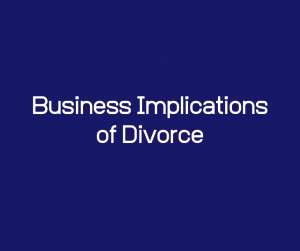Bucks County Offer of Small Business Grants Requires Quick Action
Much has been made and reported about the federal government’s effort to sustain the economy and assist working families through programs such as enhanced unemployment benefits and the Payroll Protection Plan. AMM has assisted many small business owners in negotiating the application process and anticipating both documentary requirements and potential financial consequences of the available programs. State and local governments have also offered programs to the business community. Bucks County has now announced the creation of a new grant funding opportunity: the “Bucks Back to Work Small Business Grant” program. Availability is limited, however, and the application window is small so qualifying business owners must act quickly to obtain a share of the grant fund.
PPP Funding Update – Relaxations on Certification of “Necessity”
May 14, 2020
Yesterday the Small Business Administration (SBA) issued updates to its Frequently Asked Questions (FAQs) guidance on the Paycheck Protection Plan (PPP) Loans, and added Questions/Answers (Q&A) 45 and 46, with the latter Q&A being directly related to the certification issues, and to the corresponding May 14th deadline for the return of funds as a “safe harbor” from civil and criminal penalties relating to the certification of need.
As previously reported, the PPP applications required borrowers to certify that “current economic uncertainty makes this loan request necessary to support the ongoing operations of the Applicant.” Until its issuance of this Q&A, the SBA’s guidance suggested that it would seek to impose civil and criminal penalties relating to the certification as a first resort, if it determined that the loan was unnecessary. In doing so, the SBA induced a sense of fear; and then further induced a sense of urgency by offering the safe harbor from such penalties, allowing borrowers to return the funds on or before May 7th to avoid such penalties. Such deadline was further extended to May 14th.
Paycheck Protection Program (Now is the Time to Apply!)
The Coronavirus Aid, Relief, and Economic Security Act (CARES Act), signed into law on March 27, 2020, provides $349 Billion in SBA 7(a) forgivable loans to businesses and nonprofits with fewer than 500 employees [see endnote 1), including sole proprietors, the self-employed and independent contractors. Known as the Paycheck Protection Program (PPP), the maximum available loan amount is 2.5 times your average total monthly payroll costs, capped at $100,000 per employee on an annualized basis [see endnote 2]. The loan proceeds can be used for any authorized business purpose, but to the extent used to pay payroll costs, healthcare benefits, eligible rent or mortgage interest payments and utility costs over an eight (8) week period from the date the loan is made, the loan can be forgiven (the lender is paid by the SBA). There is no collateral and no personal guarantees required. There is no requirement regarding exhausting other available credit. The SBA pays the lender all loan origination fees and has waived many of its otherwise onerous requirements. To the extent any loan balance is not forgiven, the interest rate will be fixed at the time of the loan somewhere between 0.50% and 4.0% [see endnote 3], amortized over up to 10 years, payable over two (2) years, with all payments deferred for six (6) months. There is no prepayment penalty. The program is only available through June 30, 2020, but funds are limited, so don’t wait. For more detailed information, see below and PPP Information Sheet.
The Impact of Governor Wolf’s Recent Business Closure and Stay at Home Orders
With individuals residing in Allegheny County, Bucks County, Chester County, Delaware County, Monroe County, Montgomery County, and Philadelphia County ordered to stay at home with only certain limited exceptions, and non-life sustaining businesses ordered to close, business owners struggle with what to do next. The full text of the Governor’s order and other related information can be found here. While there are many unanswered questions and additional guidance is continually being issued, business owners do have resources available to them.
Does Business Interruption Insurance Cover Claims Arising Out of COVID-19 Exposure?
Business interruption insurance covers a business’ losses resulting from a direct physical loss or damage to property. Accordingly, coverage under such a policy generally will not trigger unless there is a direct physical loss to the business’s property. In some circumstances, loss of income due to a disaster-related closing of a business’ physical location is covered.
Financial Assistance for Small Businesses Injured by the COVID-19 Outbreak
The coronavirus pandemic has already caused massive financial impacts across nearly every industry in the Commonwealth of Pennsylvania. Unemployment claims have skyrocketed, essentially all physical business locations are closed, and industry is struggling to convert to remote operations. Unfortunately, it appears the financial crisis is just beginning.
The Impact of Governor Wolf’s Closure Order on Pennsylvania Businesses
Pennsylvania Business owners have probably heard that Governor Tom Wolf ordered that all "non-life-sustaining" businesses in Pennsylvania must close their physical locations to slow the spread of COVID-19. This order went into effect last evening. You may be wondering whether your business is “life-sustaining” and may stay open. There is little guidance from the Governor’s office, other than the chart published by the Governor.
Does Commercial Liability Insurance Cover Claims Arising Out of COVID-19 Exposure?
As our collective understanding of COVID-19’s national (and global) impact continues to develop, many business owners may wonder whether their commercial general liability (CGL) policies can provide coverage against any claims associated with COVID-19, or any other infectious disease.
Coronavirus, Business and Contracts: Navigating Uncharted Waters
The impact of the COVID-19 global pandemic is rippling through the United States economy. Mass cancellations, closures, travel restrictions, containment zones and school closures at every level leave many business relationships interrupted. Goods and services previously planned for and anticipated are no longer required. Buyers are scrambling to cancel. The grocery store shelves are empty and the markets experienced perhaps the most volatile week in history. We are entering a period of great uncertainty.
Business Implications of Divorce
When a business owner gets divorced, the business is often the major asset subject to distribution. Accordingly, the business and its’ ongoing operations are almost always implicated in the divorce. In most cases that I see, the business is a small business with one owner or a few owners. In the best case scenario, the business owners have planned in advance for situations that arise in a divorce through a Shareholders Agreement, Prenuptial Agreements and/or Postnuptial Agreements. Hopefully, the parties’ respective family law and business law attorneys can work together to best protect the business owner to ensure as smooth a transition as possible. Hopefully, the relevant agreements have set forth a valuation formula which can be upheld at law for purposes of the divorce. Counsel can also work together to insure that income is clearly defined and reported so that support is less contentious. Additionally, advance planning can be used to address the below issues so that a divorce does not mean the end to the business. While advance planning is not a guarantee, it will provide additional protections to the business owner.
A divorce can impact internal and external business relationships, support (between spouses and child support), equitable distribution (division of marital property) and business control. In terms of business relationships, banking relationships can come into play, especially if the spouse is a personal guarantee of the loan. It is often not easy or possible to have the spouse removed from the guarantee. The spouse may also have a role in the business and it may not be feasible for them to remain involved. For example, in cases where the spouse is client facing, a delicate balance will be necessary to transition the spouse out of the business without negatively impacting the business. This can be a challenge if the divorce is acrimonious. Finally, the roles of the parties within the business may create sustainability issues going forward. In some cases, one spouse has a particular talent (i.e. software development, marketing creativity or scientific knowledge) which cannot be easily replaced and without which the business may not be able to survive. Such issues impact valuation but also succession and strategy on distribution of assets.
As for support, when a business owner is a party to a support action, whether for support for a spouse or for a child, calculating income can be challenging. The definition of income for purposes of determining support is very broad and is not the same as taxable income. There can be practical issues in obtaining information and documents which reflect the income. Legal issues can also arise, such as whether income is being reported or if the court can compel income or retained earnings to be distributed from the business to the owner to pay support.
In equitable distribution, the business must be valued so that division of the assets can occur. Business control also comes into play. It is unusual for parties to retain joint ownership or for the non-business owner spouse to receive shares of the business so creativity and/or structured payments are often necessary unless there is enough cash reserved for an outright payment. The payout can cause a financial strain for the business.
To best protect a business in the event of a divorce of the business owner, it is advisable for business owners to have advance planning through the mechanisms listed above. While not a guarantee, it will place the business owner spouse in a much better position than ignoring these issues all together.





























